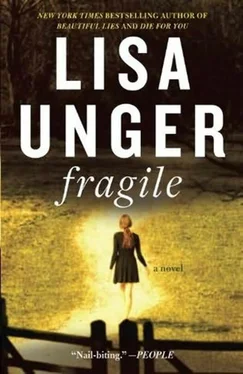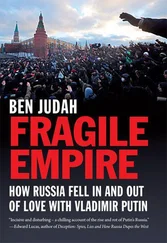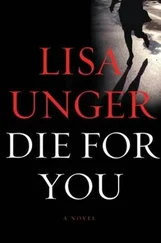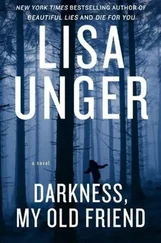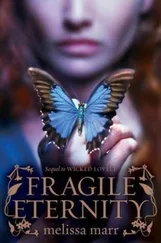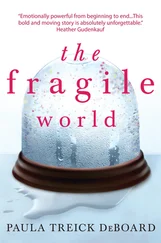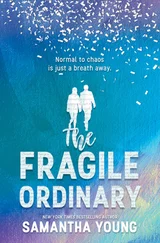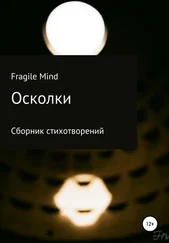Something about this, in spite of everything that lay before them, washed her with relief. Because it mattered how well they loved one another, how well they treated one another as a family-that was the root, that was the trunk of life. All the rest was just leaves that grew and fell, were raked away and grew again.
“It’s never too late, Jones.”
And that’s when she told him about what she’d found in her mother’s attic and where she had been while he was looking for her. And when he started to cry, she climbed into the bed beside him and held him until he stopped. Then they talked in a way they hadn’t since they first fell in love, with the intensity of discovery. He told her everything about the night Sarah died, and everything that followed. And Maggie knew that, for the first time in their marriage, he was revealing all of himself to her.
Sometimes Chuck Ferrigno didn’t like his job. His parents had tried to talk him out of it. They’d wanted him to be an accountant, use the talent he had for math in some way. But numbers bored him. He didn’t see the poetry or the music in math equations that some did. To him it was all so dry, so predictable. Not like life. Life was messy and imprecise, decided by the variables of humanity rather than by the constants. That’s what intrigued him, motivated him. Besides, when he was a younger man, all he wanted to do was run and chase. He wanted to deliver justice and help people in need. He wanted to race into burning buildings and rescue children. He wanted to carry a gun.
But that wasn’t the job most of the time, of course. Every once in a while, there was a moment that lived up to the dream. But generally the job was more like it was now, standing in a rest stop parking lot, looking at a rotting corpse in a pickup truck, wondering about the implications, dreading the mountain of paperwork.
Graham Olstead, husband of Melody Murray, had been dead for a while by the looks of him. In the cab, his hunting rifle hung on its mount, and there was a box of provisions that would have lasted him a few days; beside him was a knapsack of clothes.
Melody Murray had said he was going hunting, and it looked like he’d planned to do just that. But, for whatever reason, he’d pulled over into this rest stop and died here. Chuck had a feeling he knew why. He’d seen it before.
“Subdural hematoma.” Katie sounded like she was talking to herself. He hadn’t seen her flinch at the body, or even shrink from the smell. She turned to him, and when he looked at her, he saw the same creamy skin, unblemished, unlined, that he saw on the faces of his own children. She was too young to be doing this job. He understood now why his parents hadn’t wanted him to be a cop. Maybe later he’d try to talk this sweet, small-town girl into being a kindergarten teacher or something.
The wind was picking up, and on the highway beyond the stand of trees, the sound of an air horn was mournful and heavy in the night air. The moon was hidden behind cloud cover, the sky an eerie silver-black.
“If he took a blow to the head with the baseball bat, there might have been a period of lucidity, as Melody Murray claimed, when he could walk and talk.” Katie pointed to the items in the cab. “He’d be able to get ready for the trip, drive off. But if the blood from the broken vessels didn’t clot properly? And maybe if he took a Motrin for the pain, it wouldn’t have. Then, a few hours later…” She let the sentence trail, lifting a slender palm toward the corpse. She moved in closer, and Chuck followed.
Katie pointed to a purple, flowering bruise by Graham’s temple, an ugly contrast to the grayish white of the skin beneath it.
“We won’t know until the autopsy,” she said. “It’s just a theory. Coroner’s on the way.”
When he still didn’t say anything, she said, “I’ll get my camera.”
Chuck didn’t like to arrest women, but he was going to have to get a warrant and bring Melody Murray in. He wished Jones were around to do it. He had the feeling Jones wouldn’t mind at all. He wondered, not for the first time, what their history was; he knew there was one. Everyone in this town seemed connected to everyone else somehow.
Coming from New York City, Chuck found this strange. He was used to distance, to the anonymity of the crowd. But his wife loved The Hollows. Loved that she went to the store for milk and saw three people she knew, that she’d get a call from a neighbor up the way to say the kids were playing off the cul-de-sac where they were supposed to stay with their bikes. But he found it oppressive, the way people knew your business, stopped by with baked goods, commented on your kid’s performance at a soccer game you hadn’t been able to attend. He wondered what it would be like to grow up in one place and stay there all your life, to forever be defined by your childhood relationships, to never know if you got to be the person you wanted to be, to always be the person you were when you were young.
When he looked over at Katie, she was staring at the body. For the first time since she’d arrived, she looked unsettled, brow furrowed, her professional veneer slipping.
“I think my mother used to date him,” she said. “A long time ago, in high school.”
“That doesn’t surprise me,” he said. “It’s a small town.”
“She said he drank too much. That he was kind of a jerk.”
Chuck looked back at the dead man, a stranger to him, someone he’d never met in life. He wondered if it was true, what Katie said. If just saying something made it true, in a way. There was a story Chuck’s father used to tell about the boy who spread a rumor against a good doctor in the town where he lived. When the boy went to make amends, the doctor asked him to cut open a feather pillow and let the wind take the feathers away, then to come back the next day. When the boy returned, the doctor asked him to collect all the feathers and put them back in the pillowcase. Of course, it could never be done. Those feathers had been carried far, alighted in places where they couldn’t be seen or found but stayed there just the same.
“But you didn’t know him?”
“I just saw him around The Hollows. Like everyone.”
Something about the way she said it made him look at her.
“Didn’t you go to John Jay?” he asked.
“I did.”
“Why did you come back home?”
She shook her head, still staring at the body. “I don’t know. I missed my sister and her kids. The world out there, the city, it seemed so big. And I always felt small.”
The wind picked up again, making the trees bend farther and whisper louder. The air smelled like rain suddenly, and Chuck felt a sinus headache coming on. This place was hell on his allergies.
Katie walked away and starting taking pictures as two more prowlers pulled into the lot, lights flashing but sirens quiet. He’d called some bodies in to help him secure the scene. He watched as they blocked off the entrance and exit to the rest stop.
Chuck pulled the phone from his pocket to call in an arrest warrant. He looked at Katie, but she was immersed in her task, their conversation forgotten. The busy night ahead loomed large.
Leila hated her father’s house. She’d gone there as little as her sense of duty and obligation would allow while he was alive. And even now, with her father dead, she couldn’t muster any affection for the place. As she walked the rooms, which were exactly as her mother had arranged them all those years ago, she felt nothing but a tingling numbness, a persistent disbelief that it had all come to this. She waited for grief, anger, sorrow, all the things she should have been feeling at the violent passing of her father. But all she felt was the low rumble of nausea, a deep inner quiet.
Читать дальше
